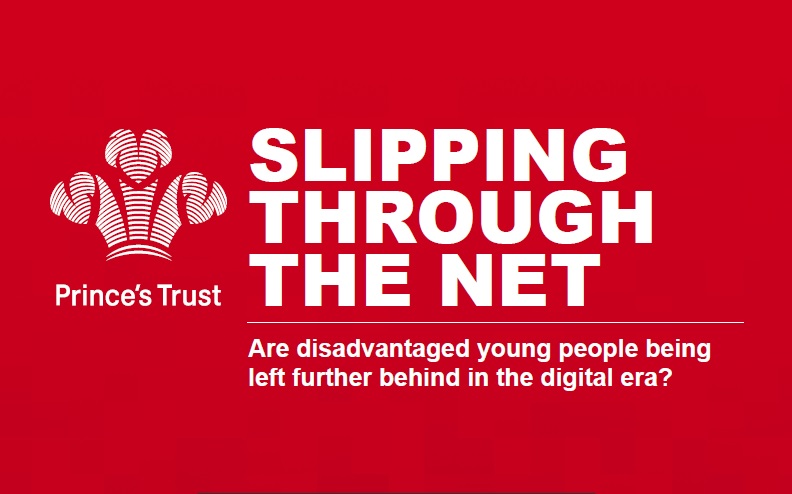 Earlier this month, the annual Freedom Online Conference took place in Accra, Ghana. In the opening plenary, LSE PhD researcher Anri van der Spuy talked about digital inclusion trends, sharing some insights from the lessons Research ICT Africa (where she is also a senior associate) has learned on the continent over the past fifteen years. Here, she summarises her comments.
Earlier this month, the annual Freedom Online Conference took place in Accra, Ghana. In the opening plenary, LSE PhD researcher Anri van der Spuy talked about digital inclusion trends, sharing some insights from the lessons Research ICT Africa (where she is also a senior associate) has learned on the continent over the past fifteen years. Here, she summarises her comments.
Ghana is one of three African member states to belong to the Freedom Online Coalition (FOC) – a partnership of 31 governments that have committed to respecting and protecting rights and freedoms online. From 6 to 8 February, Ghana hosted government officials, civil society activists, researchers, and private sector stakeholders for the annual gathering of the FOC in the Kofi Annan International Peacekeeping Training Centre in Accra.
Hosting the Conference in Africa for the first time since 2013 offered a useful opportunity for refocusing even developed countries’ efforts on addressing digital inequality. Led by the governments of Germany and Ghana, the FOC launched a joint statement on digital inclusion at the Conference, emphasising, among other things, the seemingly inevitable importance of information and communication technologies (ICTs) like the Internet for economic, cultural and social development.
This statement is by no means the first on the topic, and nor will it be the last. But it is arguably far more balanced than most. Since the United Nations’ 2030 Agenda for Sustainable Development acknowledged, in 2015, the importance of ICTs for promoting sustainable development, digital inclusion initiatives have become the focus of a myriad development efforts in Africa and elsewhere in the global South. But despite the proliferation of efforts and resources that have been invested in bridging digital divides, we’ve noticed a worrying digital inequality paradox: the more people we connect to the Internet, the more people we are leaving behind.
While there are a plethora of potential reasons for our collective failure to make progress on bridging digital divides, let’s start with just three:
First, we simply don’t know what we’re dealing with.
We don’t have enough of the right kind of data or research to fully understand both what the actual levels of connectivity are, and why digital divides appear to be growing. The data that many rely on – e.g. that which is published by the UN agency traditionally responsible for telecommunications, the International Telecommunications Union (ITU) – does provide an indication, but it isn’t always the best indication of the state of connectivity (and the reasons for same) in a specific country. And it definitely isn’t the best kind of evidence to base policy on.
For example, the ITU has estimated Ghana’s mobile phone penetration to be 139%. It draws this figure from mobile network operators, which tend to count the number of sim cards registered in a country. Because people use multiple sim cards (between 1.4 and 8 per person in Ghana, as in many other African countries) to benefit from price differentiations across networks for different services, our 2018 demand-side survey showed mobile phone penetration is closer to 74%.
Recognising the practical difficulties and oft exorbitant costs of gathering useful (and sex-disaggregated) data, the FOC statement calls on governments and donors to fund “good quality, independent research, on supply and demand-side challenges affecting digital inclusion and digital divides”. If this commitment translates to tangible action, it could lead to policymakers having much more useful evidence to base policy interventions on for addressing digital inequalities.
From supply to demand to outcomes
A second reason for our failure to make much progress is that we might be focusing on the wrong thing. In work and research on digital divides, there have been three overall trends and related foci. Initially, digital inclusion efforts focused primarily on supply-side problems, with related efforts being based on the assumption that (mere) access is enough: if one provides the infrastructure, people will automatically connect to and benefit from technology. With a growing realisation that things like digital skills and ‘offline’ inequalities matter, the focus shifted more to demand-side problems (e.g., promoting general and digital literacy, addressing cultural barriers to access, or stimulating the development of local and/or relevant content, etc.).
Because the availability of Internet access (and devices) outpaces adoption levels in many regions, we have to start paying more attention to the positive and negative outcomes of digital inclusion efforts. While trends of so-called ‘techlash’ – including wide-ranging concerns about the impact (e.g., the Centre of Humane Technology’s work on so-called ‘human downgrading’) and harms (e.g., the UK’s Online Harms White Paper) of technology on individuals, societies, and democracies – have become increasingly common in the global North, they have not translated to a realistic understanding or even examination of the impact of digital inclusion for development in the global South.
We must therefore also adopt a much more realistic view of what digital technologies can and cannot do. At the FO Conference’s opening ceremony, Ghana’s Minister of Communications, Hon. Ursela Owusu-Akuful, said: “We cannot do without technology. I believe that it will present Africa with the unique opportunity to leapfrog development.”
Few African policymakers seem to fully understand that technology isn’t a wand that can magic our problems away. And it certainly doesn’t enable us to leapfrog developmental problems. The FOC statement recognises this and notes that digital inclusion could exacerbate social and economic inequalities if so-called ‘offline’ inequalities are not addressed. This is important: RIA research has shown that besides affordability, human development – particularly education and therefore income – are the primary determinants of access, intensity of use, and use of Internet for production and not only consumption.
Towards better governance responses
As a network of networks, the Internet is only as strong as its weakest link. African governments are under significant pressure to ensure that we have adequate strategies and policies in place to actually enable technology and innovation – while preventing harm and risk. But the ways in which some governments have done so have oft exacerbated digital inequality on the continent rather than alleviate it.
Full or partial Internet shutdowns, restrictive policy proposals, and retrogressive social media taxation policies have become regretfully common in some African countries. Even FOC membership – supposedly signifying a country’s commitment to upholding freedoms online at home – hasn’t deterred some African countries from taking such harmful actions. It’s also ironic that many of these countries have digital development plans that include specific goals for digital inclusion. Internet shutdowns and social media ‘sin taxes’ can and do push people offline – thus directly contradicting digital development goals.
In her opening statement, Hon. Owusu-Akuful explicitly emphasised that despite an upcoming election and the potential of disinformation and other online risks, Ghana would never resort to Internet shutdowns as a means to address potential online risks. (Somewhat ironically, in a closing statement at the Conference, Ghanaian media were chastised for misreporting her comments and writing that government would consider shutting down the Internet in the run-up to September elections.)
To conclude, let’s hope Ghana’s leadership – in not only hosting this meeting but long championing digital rights at home and abroad – will hopefully set a positive example for the rest of the continent. An example that will help governments recognise the need to focus not only on digital inclusion efforts, but more broadly on achieving digital equality.
This article represents the views of the author and not the position of the Media@LSE blog, nor of the London School of Economics and Political Science.





